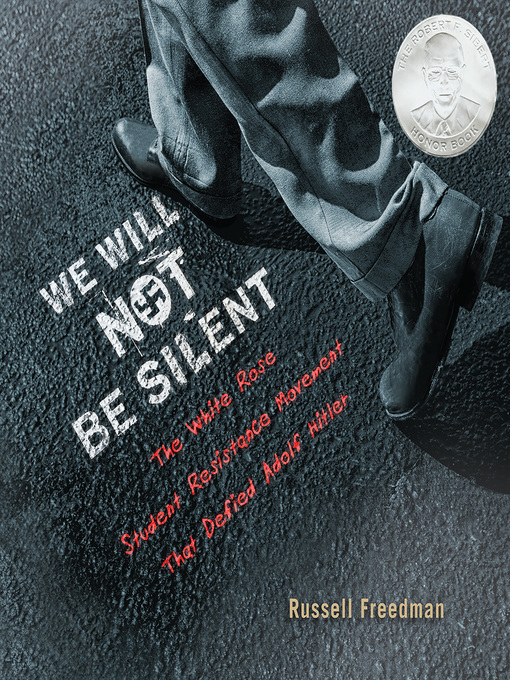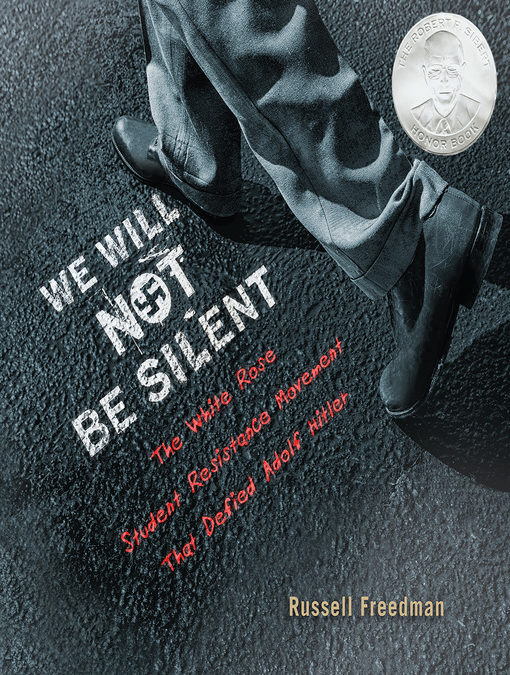

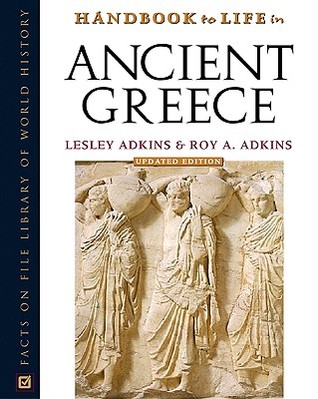
Handbook to Life in Ancient Greece by Lesley Adkins & Roy A. Adkins
Handbook to Life in Ancient Greece
by Lesley Adkins & Roy A. AdkinsAncient Greek culture was the product of centuries of change, resulting in a complex network of city-states whose legacy exerts a profound influence on modern Western civilization. Handbook to Life in Ancient Greece explores three millennia of ancient Greek history and archaeology, from the advent of the Minoan civilization in Crete to the Roman conquest in 30 B.C. Organized thematically, the Handbook explores all aspects of life in ancient Greece. Each chapter includes an extensive bibliography as well as original line drawings, photographs and maps. Handbook to Life in Ancient Greece combines archaeological and historical sources to provide all the essential information required by anyone interested in Greek history, archaeology, literature or culture.
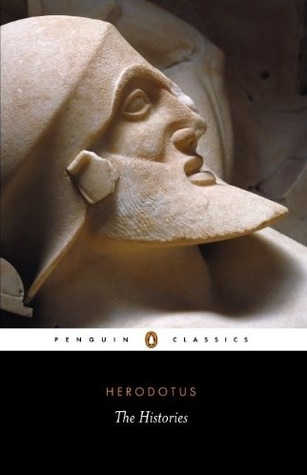
The Histories by Herodotus
The Histories
by HerodotusOne of the masterpieces of classical literature, the Histories describes how a small and quarrelsome band of Greek city states united to repel the might of the Persian empire. But while this epic struggle forms the core of his work, Herodotus’ natural curiosity frequently gives rise to colorful digressions—a description of the natural wonders of Egypt; an account of European lake-dwellers; and far-fetched accounts of dog-headed men and gold-digging ants. With its kaleidoscopic blend of fact and legend, the Histories offers a compelling Greek view of the world of the fifth century BC.
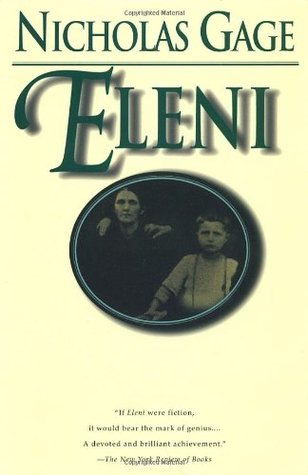
Eleni by Nicholas Gage
Eleni
by Nicholas GageIn 1948, as civil war ravaged Greece, children were abducted and sent to communist “camps” inside the Iron Curtain. Eleni Gatzoyiannis, forty-one, defied the traditions of her small village and the terror of the communist insurgents to arrange for the escape of her three daughters and her son, Nicola. For that act, she was imprisoned, tortured, and executed in cold blood.
Nicholas Gage joined his father in Massachusetts at the age of nine and grew up to become a top New York Times investigative reporter, honing his skills with one thought in mind: to return to Greece and uncover the one story he cared about most: the story of his mother.
Eleni takes you into the heart a village destroyed in the name of ideals and into the soul of a truly heroic woman.
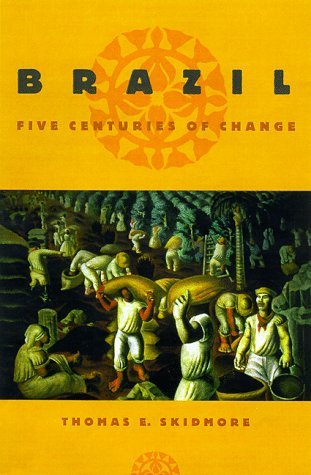
Brazil by Thomas E. Skidmore
Brazil: Five Centuries of Change
by Thomas E. SkidmoreWith a land mass larger than the continental United States, a unique culture that is part European, African, and indigenous, and the largest economy in Latin America, Brazil is one of the most important—yet one of the least understood—nations in the world.
Thomas Skidmore, a preeminent authority on Brazil, vividly traces the 500 years of Brazil’s development. Its epic story begins in the wake of Vasco da Gama’s historic circumnavigation of the globe, when another Portuguese vessel, commanded by Pedro Alvares Cabral, ran aground on the coast of Brazil in April 1500. From there Skidmore probes Portugal’s remarkable command of the vast country in the face of the advances of the Spanish, French, and Dutch colonial interests; Brazil’s compromised independence in 1822; its evolution as the center of world coffee cultivation; and the creation of the republic in the late nineteenth century. He also examines its unique forms of modernist art and literature, the dictatorship of Getulio Vargas and the military coups, and the liberal reforms of current President Fernando Henrique Cardoso. Informed by the most recent scholarship available, Brazil explores the country’s many blessings: ethnic diversity, racial democracy, a vibrant cultural life, and a wealth of natural resources. But, as Skidmore writes, the Brazilians must also grapple with a history of political instability and military rule, a deplorable environmental record, chronic inflation, and international debt. An ideal choice for undergraduate and graduate courses in Latin American history, this eloquent and detailed look at Brazil will be the standard history of the country for years to come.
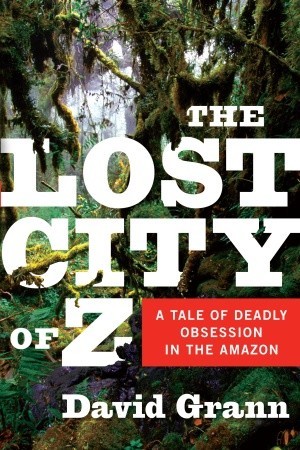
The Lost City of Z by David Grann
The Lost City of Z: A Tale of Deadly Obsession in the Amazon
by David GrannA grand mystery reaching back centuries. A sensational disappearance that made headlines around the world. A quest for truth that leads to death, madness or disappearance for those who seek to solve it. The Lost City of Z is a blockbuster adventure narrative about what lies beneath the impenetrable jungle canopy of the Amazon.
After stumbling upon a hidden trove of diaries, New Yorker writer David Grann set out to solve “the greatest exploration mystery of the 20th century”: What happened to the British explorer Percy Fawcett and his quest for the Lost City of Z?
In 1925 Fawcett ventured into the Amazon to find an ancient civilization, hoping to make one of the most important discoveries in history. For centuries Europeans believed the world’s largest jungle concealed the glittering kingdom of El Dorado. Thousands had died looking for it, leaving many scientists convinced that the Amazon was truly inimical to humans. But Fawcett, whose daring expeditions inspired Conan Doyle’s The Lost World, had spent years building his scientific case. Captivating the imagination of millions round the globe, Fawcett embarked with his 21-year-old son, determined to prove that this ancient civilisation—which he dubbed Z—existed. Then his expedition vanished. Fawcett’s fate, and the tantalizing clues he left behind about Z, became an obsession for hundreds who followed him into the uncharted wilderness. For decades scientists & adventurers have searched for evidence of Fawcett’s party and the lost City of Z. Countless have perished, been captured by tribes or gone mad. As Grann delved ever deeper into the mystery surrounding Fawcett’s quest, and the greater mystery of what lies within the Amazon, he found himself, like the generations who preceded him, being irresistibly drawn into the jungle’s green hell. His quest for the truth and discoveries about Fawcett’s fate and Z form the heart of this complexly enthralling narrative.
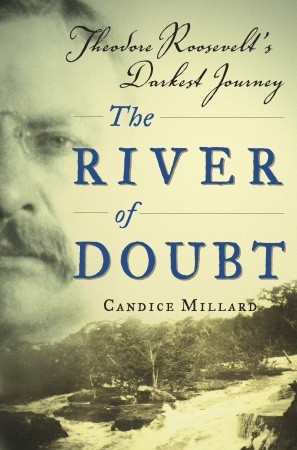
The River of Doubt by Candice Millard
The River of Doubt: Theodore Roosevelt's Darkest Journey
by Candice MillardThe Library Book Club meeting for this book was on January 18, 2018, at 6:30 in the entry foyer.
A limited number of book club reading copies were available for checkout from the circulation desk about a month prior to the meeting.
At once an incredible adventure narrative and a penetrating biographical portrait, The River of Doubt is the true story of Theodore Roosevelt’s harrowing exploration of one of the most dangerous rivers on earth.
The River of Doubt—it is a black, uncharted tributary of the Amazon that snakes through one of the most treacherous jungles in the world. Indians armed with poison-tipped arrows haunt its shadows; piranhas glide through its waters; boulder-strewn rapids turn the river into a roiling cauldron.
After his humiliating election defeat in 1912, Roosevelt set his sights on the most punishing physical challenge he could find, the first descent of an unmapped, rapids-choked tributary of the Amazon. Together with his son Kermit and Brazil’s most famous explorer, Cândido Mariano da Silva Rondon, Roosevelt accomplished a feat so great that many at the time refused to believe it. In the process, he changed the map of the western hemisphere forever.
Along the way, Roosevelt and his men faced an unbelievable series of hardships, losing their canoes and supplies to punishing whitewater rapids, and enduring starvation, Indian attack, disease, drowning, and a murder within their own ranks. Three men died, and Roosevelt was brought to the brink of suicide. The River of Doubt brings alive these extraordinary events in a powerful non-fiction narrative thriller that happens to feature one of the most famous Americans who ever lived.
From the soaring beauty of the Amazon rain forest to the darkest night of Theodore Roosevelt’s life, here is Candice Millard’s dazzling debut.
Ratings and Reviews from the Librarians
Cathy rated it ★★★★★.
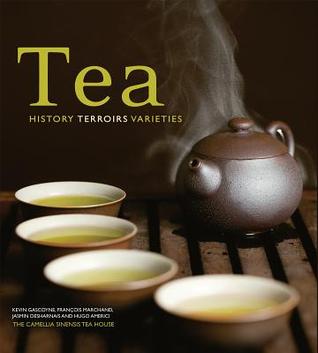
Tea by Kevin Gascoyne, et al.
Tea: History, Terroirs, Varieties
by Kevin Gascoyne, Francois Marchand, Jasmin Desharnais, and Hugo AmericiTea is second only to water as the most-consumed beverage in the world. When recent studies revealed green tea’s health benefits, North American consumption skyrocketed.
Tea is a comprehensive guide to non-herbal tea, the plant “Camellia sinensis.” Concise and authoritative text and an abundance of color photographs take the reader on an escorted tour of the world’s tea-growing countries: China, Japan, Taiwan, India, Sri Lanka, Nepal, Vietnam and East Africa. Like a fine wine, it is the “terroir”—a region’s soil and climate—that imparts unique characteristics to a tea.
The book covers black, green, white, yellow, oolong, pu’er, perfumed, aromatic and smoked teas. Topics include:
- An overview of the history of tea
- Tea varieties
- The worldwide export of tea
- How tea is processed
- Signature tea cultivars
- The art of making, serving and tasting tea, including tea ceremonies
- Tea in cooking, with 15 recipes from gourmet chefs
- A directory of teas
A set of detailed charts, tables and graphs shows the caffeine, antioxidant and other biochemical properties of 35 teas.
Tea aficionados go on organized tours of tea-growing regions, enroll in tasting seminars and earn professional certificates. For them and for the interested reader who enjoys the occasional cup, Tea is a beautifully presented homage to the world’s most beloved hot beverage.
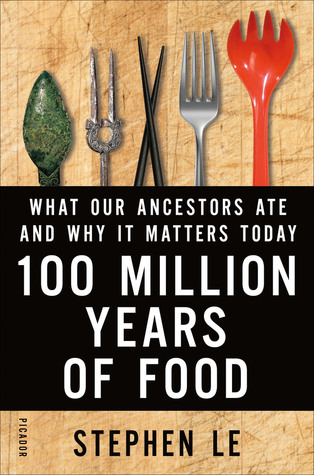
100 Million Years of Food by Stephen Le
100 Million Years of Food: What Our Ancestors Ate and Why It Matters Today
by Stephen LeA fascinating tour through the evolution of the human diet, and how we can improve our health by understanding our complicated history with food.
There are few areas of modern life that are burdened by as much information and advice, often contradictory, as our diet and health: eat a lot of meat, eat no meat; whole-grains are healthy, whole-grains are a disaster; eat everything in moderation; eat only certain foods—and on and on. In One Hundred Million Years of Food, biological anthropologist Stephen Le explains how cuisines of different cultures are a result of centuries of evolution, finely tuned to our biology and surroundings. Today many cultures have strayed from their ancestral diets, relying instead on mass-produced food often made with chemicals that may be contributing to a rise in so-called “Western diseases,” such as cancer, heart disease, and obesity.
Travelling around the world to places as far-flung as Vietnam, Kenya, India, and the US, Stephen Le introduces us to people who are growing, cooking, and eating food using both traditional and modern methods, striving for a sustainable, healthy diet. In clear, compelling arguments based on scientific research, Le contends that our ancestral diets provide the best first line of defense in protecting our health and providing a balanced diet. Fast-food diets, as well as strict regimens like paleo or vegan, in effect highjack our biology and ignore the complex nature of our bodies. In One Hundred Million Years of Food, Le takes us on a guided tour of evolution, demonstrating how our diets are the result of millions of years of history, and how we can return to a sustainable, healthier way of eating.

